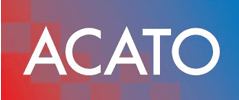Understanding ISO 27001: A Comprehensive Overview
ISO 27001 is an international standard that outlines the requirements for an information security management system (ISMS). It provides a systematic approach to managing sensitive company information, ensuring its confidentiality, integrity, and availability. For SMEs, adopting ISO 27001 can enhance their credibility and trustworthiness in the eyes of customers and partners.
By implementing ISO 27001, businesses can not only protect their data but also streamline operations by identifying potential risks and establishing effective controls. This proactive approach to information security can lead to improved business processes and a competitive edge in the marketplace, making it an essential consideration for any organization aiming for sustainable growth.
Implementing ISO 27001: Step-by-Step Guide
Successfully implementing ISO 27001 involves a series of structured steps that guide organizations through the process of establishing an ISMS. This includes defining the scope, conducting a risk assessment, and developing necessary policies and procedures. Each step is crucial in ensuring that the organization meets the standard's requirements and effectively manages its information security risks.
Furthermore, ongoing training and awareness programs are vital to ensure that all employees understand their roles in maintaining information security. Regular audits and reviews will help identify areas for improvement, ensuring that the ISMS remains effective and compliant with ISO 27001 standards over time.
Common Challenges in Achieving ISO 27001 Certification
While pursuing ISO 27001 certification can yield significant benefits, organizations often face challenges during the process. Common obstacles include resource constraints, lack of expertise, and resistance to change among staff. These challenges can hinder progress and may require strategic planning and commitment from leadership to overcome.
Addressing these challenges often involves investing in training and consultancy services to build internal capabilities. Additionally, fostering a culture of information security within the organization can help mitigate resistance and encourage employee buy-in, making the certification journey smoother and more effective.
The Role of Technology in ISO 27001 Compliance
Technology plays a pivotal role in achieving and maintaining ISO 27001 compliance. Advanced tools and software solutions can automate various aspects of the ISMS, such as risk assessments, incident management, and compliance reporting. By leveraging technology, organizations can enhance their efficiency and accuracy in managing information security.
Moreover, adopting cloud-based solutions can facilitate easier access to critical data while ensuring robust security measures are in place. This not only aids in compliance but also supports the organization's overall digital transformation journey, aligning with modern business practices and enhancing operational resilience.





